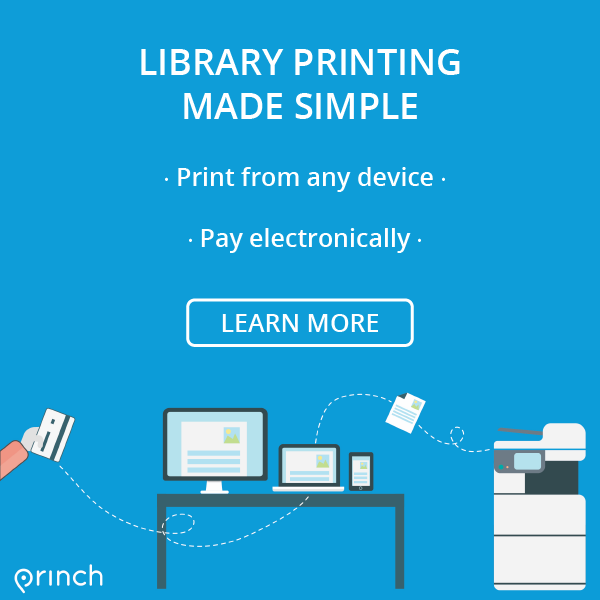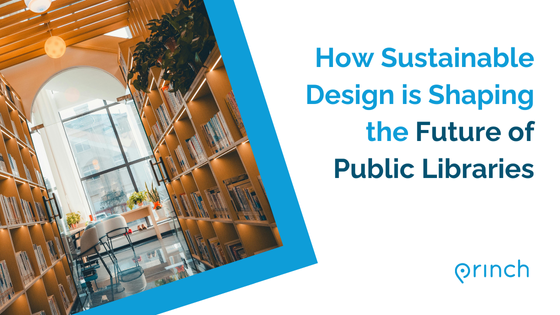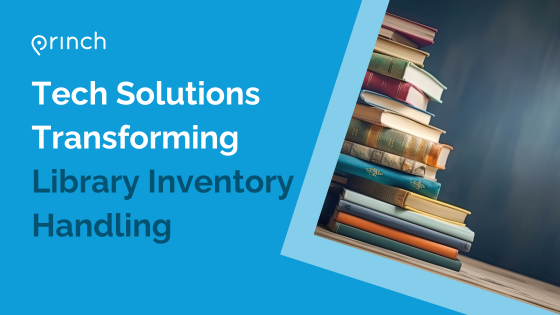Listen in your favourite player
Why is having a global network important for libraries? What are the benefits one would get from being part of a network? And just how exactly can one acquire global relations?
You can find the answer to these and many other questions in episode three of the Princh Library Lounge! In this episode our host, Vicky Woolbarn is joined by Marie Østergaard and R. David Lankes, two advocates for this topic.
In the eyes of many people, the duty of libraries is to serve their local communities. But if that is the case, why is having a global network important for libraries, when they are serving only their local visitors?
Marie starts the conversations by stating that libraries do not compete with one another, neither for money nor for visitors. As such, a global network is a great opportunity to gather knowledge and ideas from other libraries on how to serve your community better. She also draws attention to Public Libraries 2030 (PL 2030), a Europe-wide attempt to make libraries connect easier.
David states that while yes, libraries do serve their own local communities, they need to bring in the best ideas from around the world to continuously offer the best service. He also mentions that libraries have always been about connecting and networking together, technological and societal changes just enabled a faster, more efficient way of sharing ideas.
Marie adds that libraries are not just organizations, libraries are movements. As a movement, libraries can involve partners from other communities or even citizens in their network, whereas before, in the more hierarchical structure, that was not possible.
To learn how building a global network is important for libraries, listen to the Princh Library Lounge Episode 3.
What kind of advice would you give someone who is looking to get involved in networking?
David elaborates on how this movement aims to connect people better. He states that in the past, when libraries would reach out to each other, it was often a very formal procedure which could sometimes lack the openness of a casual conversation. The aim of PL 2030 is to change this outlook towards networking. His main question is, how can this movement be pushed forward? How can this network be made more accessible? The answer is not clear.
Marie adds that the most important thing, when getting involved, is to be interested in what is happening outside your library and community. To be able to gather the best ideas, one has to utilize all available channels, like social media, conferences, places with more loosely knitted social relationships.
So, the question is, how can access to professional development and accessibility to new ideas be combined with mentorship, friendship and bringing people together? Share on XDavid further elaborates on the topic, by saying that while there is a huge amount of professional development material available online, it is getting harder to find someone to guide innovators through this process. So, the question is, how can access to professional development and accessibility to new ideas be combined with mentorship, friendship and bringing people together?
To learn more about how to start building a global network, listen to episode 3 of the Princh Library Lounge!
Can you give us a specific example of a library that successfully built and utilized its global network?
Marie’s example is Dokk1 in Aarhus, where she works. After building Dokk1, the library staff knew that they alone did not possess the knowledge to create what they envisioned. And so, this posed the question; how could they find the right people—ones they knew and, more importantly, people they did not know—to bring together the right combination of knowledge and skillsets to contribute to developing the library most effectively? To achieve this, the library staff organized “Next Library” a bi-yearly conference where library professionals from all around the world have the opportunity to discuss library development. These conferences helped Dokk1 build a global network and try out completely new ideas. As a result, Dokk1 has turned into a new, world library.
how could they find the right people—ones they knew and, more importantly, people they did not know—to bring together the right combination of knowledge and skillsets to contribute to developing the library most effectively? Share on XDavid mentions the idea of libraries serving their communities is a relatively new one and that the way people think about librarianship is shifting. While a lot of the conversations are still about the networks associated with libraries, the power and role of individual librarians is slowly becoming the focus of attention. This shift enables innovative ideas to be exchanged and it is the force behind the changing concept of libraries. As a result of this change in the last 10-15 years, libraries have become the living room of their communities.
As a result of this change in the last 10-15 years, libraries have become the living room of their communities. Share on XMarie expands on the challenges that PL 2030 faces. The movement has to find the balance between building a network of libraries that can support each other while not affecting the existing hierarchical structure in a negative way.
The movement has to find the balance between building a network of libraries that can support each other while not affecting the existing hierarchical structure in a negative way. Share on XDavid elaborates that while libraries are a movement, they cannot move themselves, they need the input of the community around them. It is not the librarians running the community, it is the community coming together and building the library.
To learn more about the shifting role of librarians and libraries, listen to episode 3 of the Princh Library Lounge!
If I was a librarian in Europe, how could I get involved with PL 2030?
According to Marie, the best way to join the movement is to reach out to one of the libraries that is already involved in it and share your interests and possible contributions with them. PL 2030 is aiming to build groups of people with similar interests, making idea exchanges easier between them. Even if you do not have any ideas to share with others, you can join the movement. PL 2030 is about helping each other, through cooperation, libraries and librarians gain access to the collective knowledge from libraries across Europe.
PL 2030 is about helping each other, through cooperation, libraries and librarians gain access to the collective knowledge from libraries across Europe. Share on XDavid adds that the idea behind PL 2030 is not to replace the existing cooperative networks, but to work within and across them. He also encourages members of the library world to stop preparing for innovation – if you have a good idea, try it, tell others about it and evolve it quickly. He also mentions that when you join the initiative, you will be asked; what do you need? How can it be done better?
PL 2030 is not to replace the existing cooperative networks, but to work within and across them.
Marie expands on the key aspects of being part of PL 2030. She mentions that one has to have an open mind and willingness to think about and try new ideas. She also says that while building global networks one should never underestimate the power of personal relations.
Marie mentions that one has to have an open mind and willingness to think about and try new ideas. She also says that while building global networks one should never underestimate the power of personal relations. Share on XDavid elaborates on his point regarding the slow innovation process of libraries. He urges librarians to tell someone about any crazy ideas they have heard as soon as possible. He also recommends keeping a ‘crazy idea list’, but not for the ideas themselves, but for the people you can share your ideas with. He also states people in the beginning of their careers are great to connect with, since they have a new perspective on what libraries have been doing for years. One of the greatest advantages of PL 2030 is that it enables creative innovators who lack resources to connect with other librarians, MPs, businesspeople and communities in a way which they typically cannot, in traditional associations. That is the power of play and the advantage of creating crazy idea lists with crazy idealists.
That is the power of play and the advantage of creating crazy idea lists with crazy idealists. Share on XTo learn more about Public Libraries 2030 and how you can join it, listen to episode three of the Princh Library Lounge!
If somebody wants to continue this conversation with you, where can they do so?
Marie: mao@aarhus.dk
David: rdlankes@gmail.com
You can also visit Public Libraries 2030 website.
Subscribe to the blog and receive news from libraries around the world














